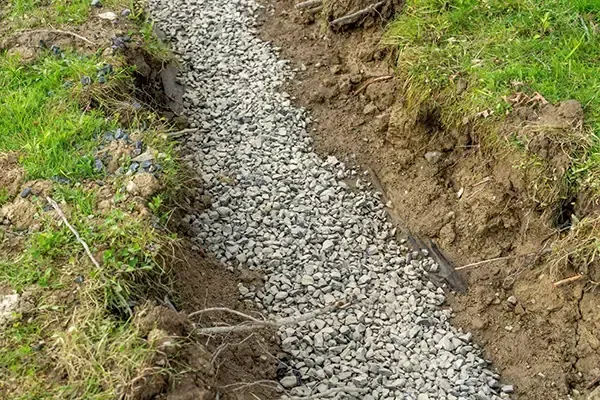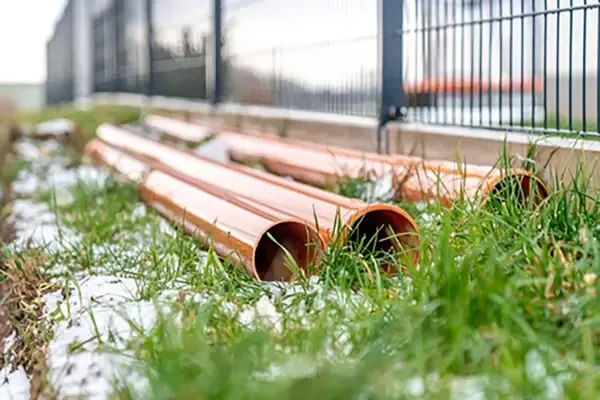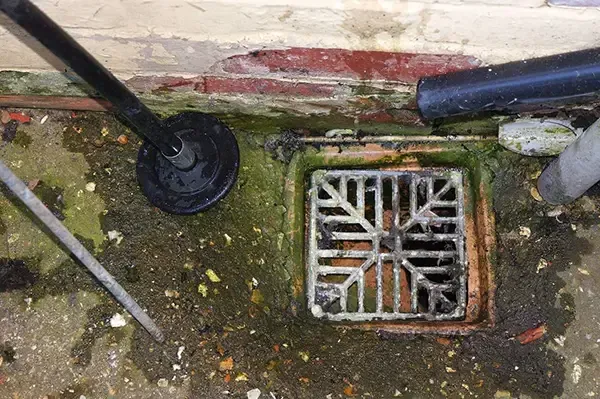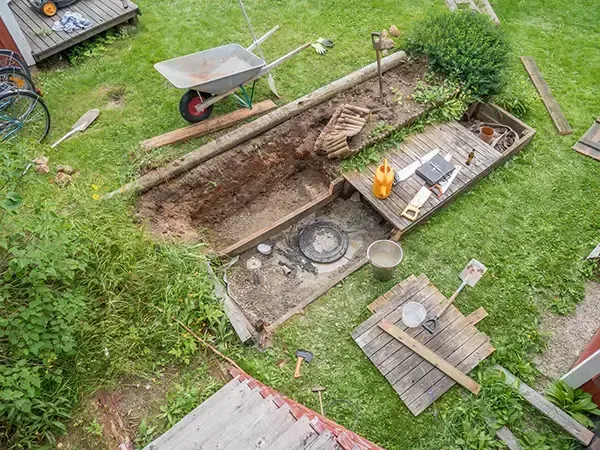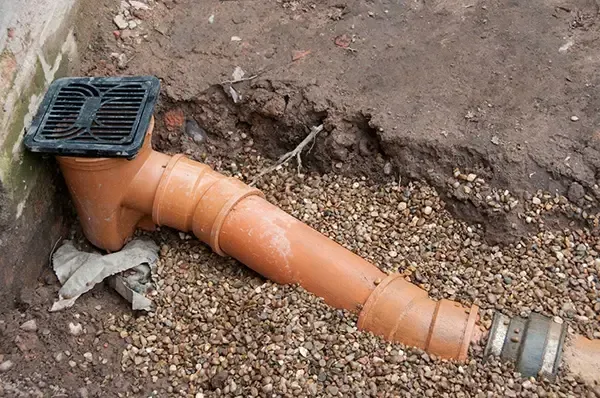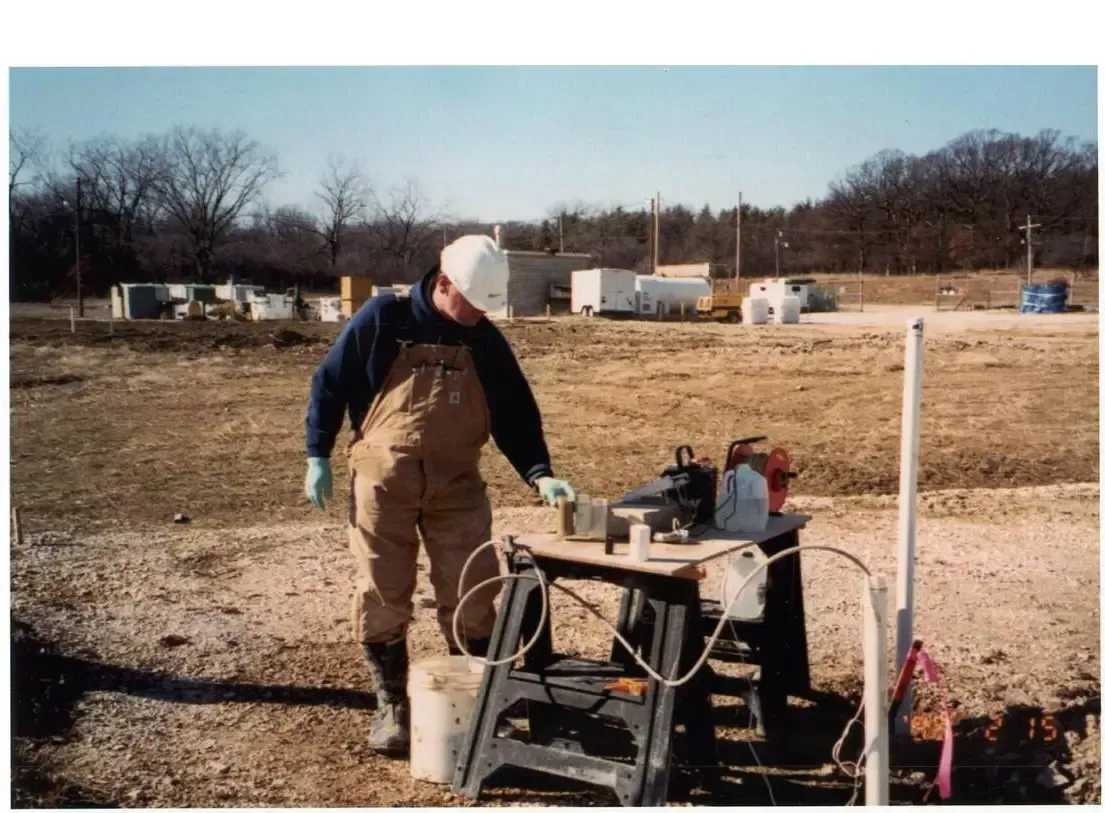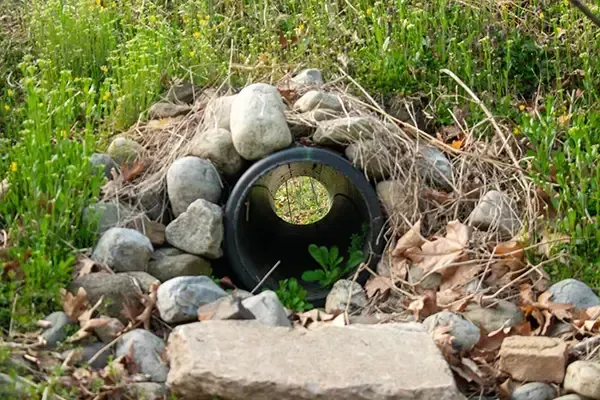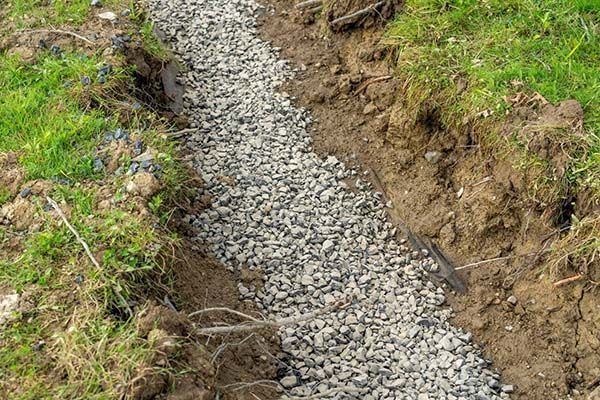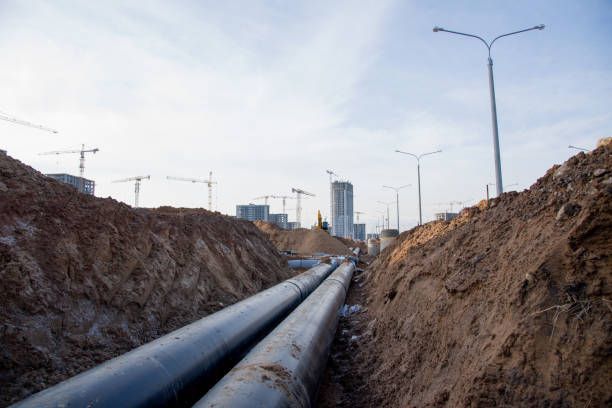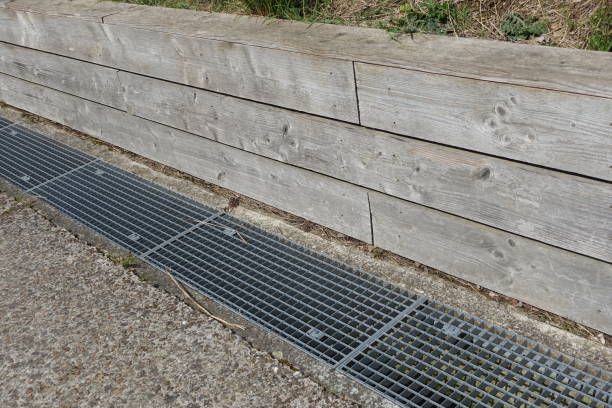How Does Weather Affect the Need for French Drain Service?
You might not realize just how much weather influences your French drain's performance and maintenance needs.
For instance, when heavy rain hits, your drainage system can easily become overwhelmed, risking water damage to your property.
Conversely, during dry spells, soil shrinkage can create its own set of challenges.
Seasonal changes add another layer of complexity, with freezing temperatures potentially causing ice blockages.
Understanding these dynamics is crucial, but what are the specific steps you can take to ensure your system remains effective throughout the year?
Impact of Heavy Rainfall on Your Property and the Importance of French Drains
Heavy rainfall can significantly impact your property, leading to various issues related to water accumulation and drainage.
Challenges During Heavy Rainfall:
- Increased Water Runoff: Heavy rainfall can overwhelm existing drainage systems, leading to increased water runoff and potential flooding.
- Pooling Water: Water may accumulate in low-lying areas of your property, creating soggy lawns and potentially damaging your landscaping.
- Foundation Issues: Excess water can seep into your foundation, causing hydrostatic pressure and potentially leading to cracks, settling, and other structural damage.
- Basement Flooding: Water can infiltrate your basement, causing damage to belongings and creating a damp and unhealthy living environment.
The Role of French Drains:
- Effective Water Management: French drains effectively collect and redirect surface and groundwater, minimizing the risk of flooding and water accumulation.
- Foundation Protection: By reducing water pressure around the foundation, French drains help prevent structural damage.
- Improved Drainage: French drains ensure that water is efficiently channeled away from your property, preventing damage to your landscaping and creating a drier and more usable outdoor space.
Proactive Measures:
- Assess Your Drainage System: Evaluate your current drainage system to identify potential weaknesses and areas for improvement.
- Consider a French Drain: If your property experiences significant water issues during heavy rainfall, consider installing a French drain as a proactive solution.
By investing in a well-installed French drain, you can mitigate the potential damage caused by heavy rainfall, protect your property, and enjoy a drier and more comfortable living environment.
Effects of Drought Conditions and the Role of French Drains
While French drains are primarily designed to manage excess water, they can also play a role in mitigating the effects of drought conditions.
Challenges of Drought Conditions:
- Soil Shrinkage: Prolonged dry periods can lead to soil shrinkage, which can cause foundation settlement and structural damage.
- Plant Stress: Drought conditions can stress plants, leading to wilting, browning, and even death.
- Altered Drainage Patterns: Drought can alter the drainage patterns on your property, making some areas more susceptible to erosion.
Role of French Drains During Drought:
- Even Distribution of Water: If you have an irrigation system, a well-installed French drain can help distribute water more evenly across your property.
- Reduced Erosion: By minimizing water runoff during heavy rains, French drains can help prevent soil erosion during periods of drought.
Maintaining Your French Drain During Drought:
- Regular Inspection: Continue to monitor your French drain for any signs of blockage or damage, especially during periods of drought.
- Proper Irrigation Practices: Implement efficient irrigation practices to minimize water waste and ensure your plants receive adequate moisture.
By proactively managing your French drain and implementing water-conserving practices, you can mitigate the effects of drought conditions and maintain a healthy and thriving landscape.
Seasonal Temperature Changes and Their Impact on French Drains
Seasonal temperature fluctuations can significantly impact the performance of your French drain system.
Winter:
- Freezing Temperatures: Freezing temperatures can cause water within the French drain to freeze, leading to ice blockages.
- Potential for Backups: Ice blockages can impede water flow, potentially leading to water backups and increased pressure on the drainage system.
Spring:
- Increased Rainfall: Spring often brings increased rainfall, which can put a strain on your drainage system.
- Importance of Maintenance: Regular maintenance, such as clearing debris, is crucial to ensure the system can handle increased water flow.
Summer:
- Drought Conditions: Prolonged dry periods can lead to soil shrinkage and potential gaps around the drainage system.
- Reduced System Effectiveness: These gaps can reduce the effectiveness of the French drain, allowing water to bypass the system and potentially leading to water accumulation.
Autumn:
- Leaf and Debris Accumulation: Falling leaves and other debris can clog the drain outlet and impede water flow.
- Importance of Fall Maintenance: Regular cleaning and maintenance before winter is crucial to prevent blockages and ensure optimal drainage performance during the colder months.
By proactively addressing these seasonal challenges and conducting regular maintenance, you can ensure your French drain continues to function effectively throughout the year, protecting your property from water damage.
Weather plays a pivotal role in the performance and maintenance of French drains, making regular upkeep essential for year-round effectiveness.
From managing heavy rainfall and mitigating drought effects to addressing seasonal temperature changes, proactive care ensures your system remains reliable under all conditions.
By conducting seasonal inspections, clearing debris, and addressing potential blockages or damage, you can safeguard your property against water-related challenges and maintain a durable, efficient drainage solution regardless of the weather.
